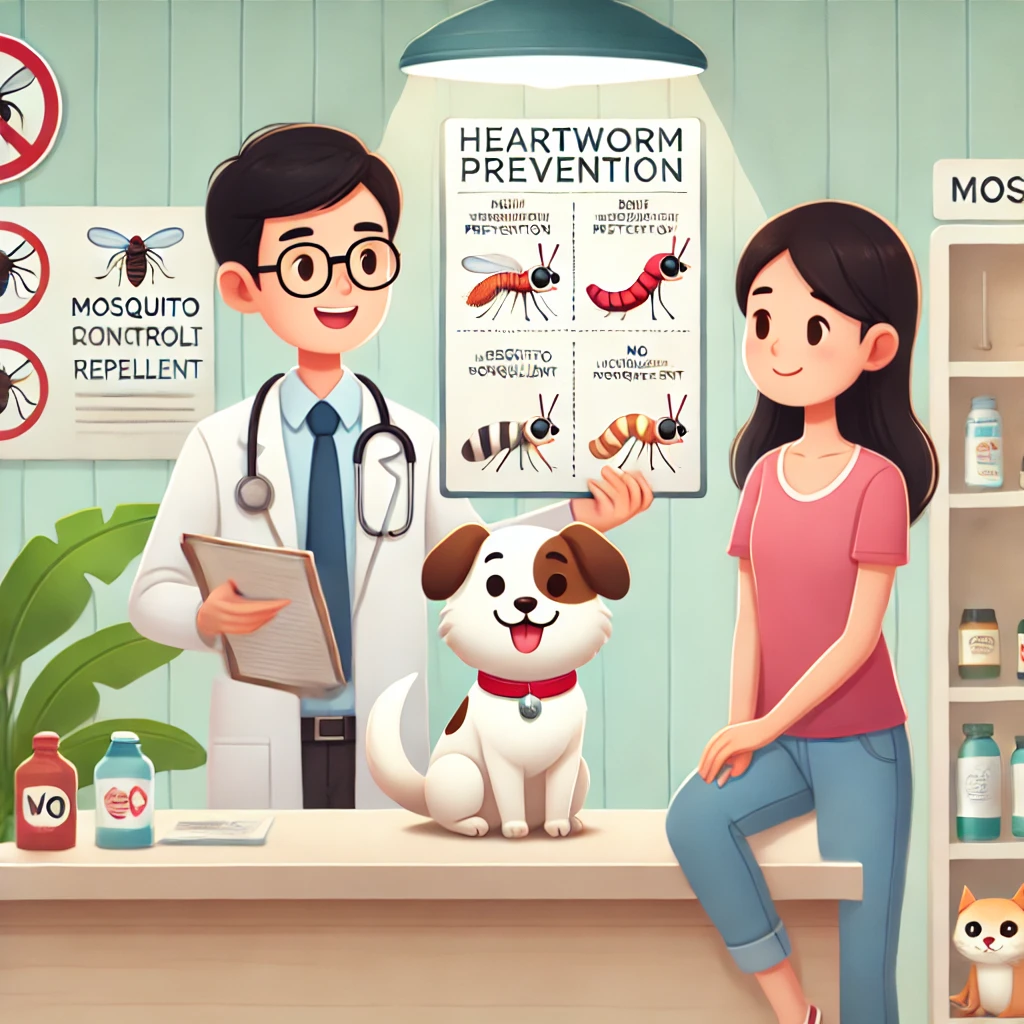
Pet Heartworm Prevention
As pet owners, one of our primary responsibilities is ensuring the health and happiness of our furry companions. Among the many health risks pets face, heartworm disease stands out as a serious and potentially fatal condition. The good news? Heartworm disease is preventable! In this guide, we’ll explore essential pet heartworm prevention tips to keep your beloved pets safe and healthy.
Understanding Heartworm Disease
Heartworm disease is caused by parasitic worms called Dirofilaria immitis, which are transmitted through mosquito bites. Once inside a pet’s body, these worms mature and settle in the heart, lungs, and blood vessels, leading to severe organ damage and even death if left untreated.
Which Pets Are at Risk?
Both dogs and cats are susceptible to heartworm disease, though it’s more common in dogs. Outdoor pets are at a higher risk due to increased exposure to mosquitoes, but even indoor pets are not completely safe.
Essential Pet Heartworm Prevention Tips
1. Regular Preventative Medications
The cornerstone of pet heartworm prevention is administering monthly heartworm preventatives. These come in various forms, such as:
- Chewable tablets
- Topical solutions
- Injections (administered by your veterinarian)
These medications not only kill immature worms but also protect against other parasites like fleas and intestinal worms. Always consult your vet to determine the best option for your pet.
2. Annual Heartworm Testing
Even if your pet is on preventative medication, yearly testing is crucial. Preventatives are highly effective but not infallible. Early detection ensures prompt treatment and minimizes complications.
3. Mosquito Control
Reducing your pet’s exposure to mosquitoes can significantly lower the risk of heartworm disease. Here’s how:
- Use pet-safe mosquito repellents.
- Install screens on windows and doors to keep mosquitoes out.
- Eliminate standing water in your yard where mosquitoes breed.
4. Keep Up with Vet Visits
Regular veterinary check-ups are vital for monitoring your pet’s overall health. Your vet can provide personalized recommendations for heartworm prevention and discuss the latest advancements in treatment options.
5. Education and Awareness
Staying informed about heartworm disease is key. Know the risks in your area, as heartworm prevalence varies by region. For example, warm and humid climates are hotspots for mosquitoes and, consequently, heartworms.
Symptoms of Heartworm Disease
Despite your best efforts, it’s essential to recognize the early signs of heartworm disease:
- Persistent coughing
- Fatigue after mild activity
- Decreased appetite
- Weight loss
- Swollen abdomen (from fluid buildup)
If you notice any of these symptoms, contact your vet immediately.
The Human Touch: Caring Beyond Prevention
Preventing heartworm disease isn’t just about medications and testing—it’s about the love and care you provide daily. Whether it’s ensuring they get enough exercise, feeding them a balanced diet, or simply cuddling on the couch, your bond plays a significant role in their overall well-being.
Heartworm disease is a serious threat, but with proactive measures, it’s entirely preventable. By following these pet heartworm prevention tips and working closely with your veterinarian, you can protect your pets from this life-threatening condition.
For more tips on keeping your pets healthy and happy, visit PetPulseDaily.com. Together, we can ensure our furry friends live their best lives.
